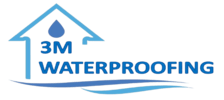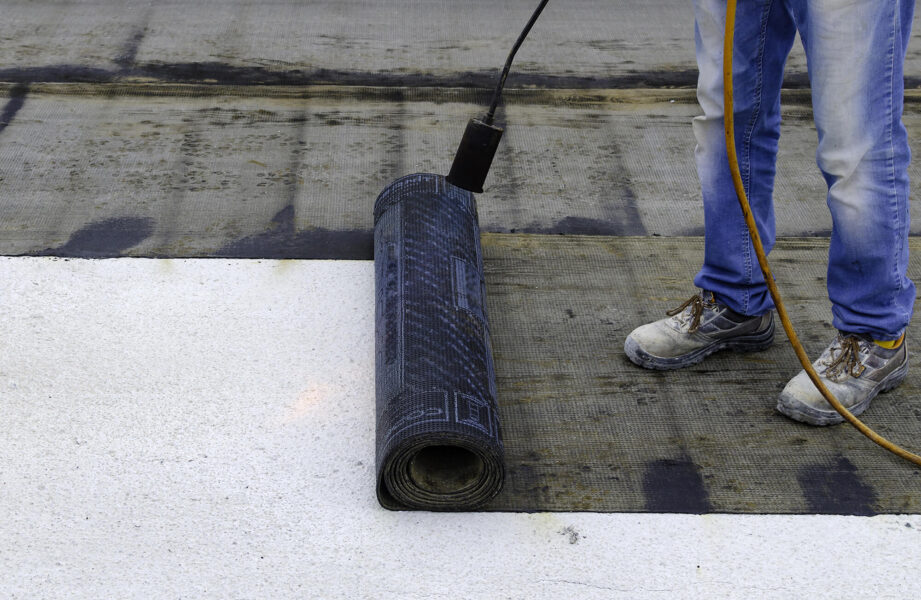Industrial and commercial buildings serve a variety of purposes, from manufacturing products to housing offices and storing goods. These structures are often large and designed for heavy use, but they are not immune to damage caused by water and moisture. Waterproofing for industrial and commercial buildings is a crucial service that protects these structures from water damage, leakage, and related issues. It ensures safety, durability, and smooth operations. In this article, we will discuss waterproofing for industrial and commercial buildings in simple terms, highlighting its importance, methods, and benefits.
What Is Waterproofing for Industrial and Commercial Buildings?
Waterproofing is the process of protecting a building from water penetration and damage. In industrial and commercial settings, waterproofing involves applying materials and systems to walls, roofs, basements, and other parts of the structure to create a water-resistant barrier. This barrier prevents water from seeping into the building, maintaining its strength and functionality.
Why Is Waterproofing Important for Industrial and Commercial Buildings?
- Prevents Water Damage:
- Water can seep into walls, roofs, and foundations, causing cracks, dampness, and deterioration.
- Waterproofing protects the structure from water-related damage.
- Ensures Safety:
- Water infiltration can weaken a building’s structure, making it unsafe for occupants.
- Proper waterproofing helps maintain the integrity of the building.
- Protects Valuable Equipment:
- Industrial and commercial buildings often house expensive machinery, equipment, and goods.
- Waterproofing prevents water damage to these assets.
- Avoids Downtime:
- Leaks and water damage can disrupt operations, leading to downtime and financial losses.
- Waterproofing ensures smooth and continuous operations.
- Stops Mold and Mildew Growth:
- Moisture creates an ideal environment for mold and mildew, which can harm health and damage goods.
- Waterproofing keeps the building dry, preventing mold growth.
- Improves Energy Efficiency:
- Water intrusion can reduce insulation efficiency, leading to higher energy costs.
- Waterproofing maintains insulation, helping save energy.
- Complies with Regulations:
- Many industries have strict safety and building standards.
- Waterproofing helps meet these requirements and avoid penalties.
Common Problems Solved by Waterproofing
- Leaks in Walls and Roofs: Waterproofing seals cracks and gaps, stopping leaks.
- Dampness in Basements: It prevents water from seeping into basements, keeping them dry.
- Damage to Foundations: Waterproofing protects foundations from groundwater and erosion.
- Corrosion of Metal Parts: It prevents rust and corrosion in metal structures and components.
- Efflorescence: White, powdery deposits on walls caused by water in concrete are eliminated by waterproofing.
Key Areas That Need Waterproofing in Industrial and Commercial Buildings
- Roofs:
- Roofs are exposed to rain and weather changes, making them prone to leaks.
- Waterproofing protects the roof from water damage and prolongs its life.
- Basements:
- Basements are susceptible to groundwater seepage.
- Waterproofing keeps them dry and safe for use.
- Walls:
- Exterior and interior walls can absorb moisture, causing damage.
- Waterproofing prevents dampness and cracks.
- Floors:
- Floors in industrial buildings often face spills and moisture.
- Waterproofing protects them from damage and wear.
- Foundations:
- The foundation is the most critical part of any building.
- Waterproofing shields it from groundwater and pressure.
Types of Waterproofing for Industrial and Commercial Buildings
- Cementitious Waterproofing:
- Cement-based coatings are applied to concrete surfaces.
- This method is simple and cost-effective, suitable for basements and walls.
- Liquid Waterproofing:
- Liquid coatings, like polyurethane or acrylic, are applied to surfaces.
- Once dried, they form a seamless waterproof layer.
- Membrane Waterproofing:
- Waterproof membranes made of rubber or plastic are used to seal surfaces.
- This method is durable and provides excellent protection for roofs and basements.
- Bituminous Waterproofing:
- Bitumen-based materials are applied to create a strong waterproof barrier.
- This method is ideal for roofs and foundations.
- Injection Waterproofing:
- Waterproofing materials are injected into cracks and joints.
- This method is effective for repairing leaks in existing structures.
- Crystalline Waterproofing:
- Crystalline chemicals are applied to concrete surfaces.
- These chemicals react with water to form crystals that block pores and prevent seepage.
Steps in Waterproofing for Industrial and Commercial Buildings
- Inspection:
- Professionals inspect the building to identify areas prone to water damage.
- Surface Preparation:
- The surface is cleaned to remove dirt, grease, and debris.
- Cracks and damaged areas are repaired to ensure a smooth application.
- Application of Waterproofing Material:
- The chosen waterproofing material is applied using specialized techniques.
- Multiple layers may be added for better protection.
- Sealing Joints and Gaps:
- Joints, gaps, and edges are sealed with waterproof sealants or membranes.
- Drainage Installation:
- Drainage systems are installed to direct water away from the building.
- Testing:
- The waterproofing is tested to ensure effectiveness and durability.
Benefits of Waterproofing for Industrial and Commercial Buildings
- Enhanced Durability: Waterproofing protects the building from damage, increasing its lifespan.
- Improved Safety: A dry and stable building is safer for employees, customers, and visitors.
- Cost Savings: Preventing water damage reduces maintenance and repair costs.
- Better Indoor Environment: Waterproofing keeps the interior free from dampness and mold, promoting a healthier workspace.
- Energy Efficiency: Waterproofing maintains insulation, helping save on energy costs.
- Compliance and Reputation: A well-maintained building meets safety standards and enhances the company’s image.
DIY Waterproofing: Is It Suitable for Industrial and Commercial Buildings?
While DIY waterproofing may work for small-scale projects, it is not recommended for industrial and commercial buildings. Waterproofing these structures requires specialized knowledge, materials, and equipment. Hiring professionals ensures that the job is done correctly and provides long-lasting results.
Cost of Waterproofing Services
The cost of waterproofing services depends on:
- The size and type of the building.
- The extent of water damage.
- The waterproofing methods and materials used.
- Labor charges and additional installations.
Though the initial cost may seem high, waterproofing is a long-term investment that saves money by preventing damage and repairs.
Choosing the Right Waterproofing Service
- Experience: Choose professionals with experience in industrial and commercial waterproofing.
- Quality Materials: Ensure they use durable and reliable waterproofing materials.
- Affordable Pricing: Compare quotes from different service providers to find the best value.
- Warranty: Select a company that offers a warranty for their work.
- Customer Reviews: Read reviews or ask for recommendations to find a trustworthy service provider.
Conclusion
Waterproofing for industrial and commercial buildings is essential for protecting these valuable structures from water damage. It ensures safety, durability, and functionality, while also reducing maintenance costs. By choosing the right waterproofing methods and professionals, businesses can safeguard their investments and maintain smooth operations. Waterproofing is not just a maintenance task—it is a vital step toward a safe and sustainable future for industrial and commercial properties.

